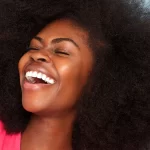
African Americans have often faced challenges when it comes to wearing their natural hair in the workplace or educational settings. The issue of hair discrimination has gained attention and sparked conversations about racial equality and individual expression.
One significant development in addressing this issue is the passing of laws that make race-based hair discrimination illegal in certain states. Connecticut, for example, recently joined a growing number of states in banning hair discrimination. This step aims to protect individuals from being penalized or mistreated due to their natural hair.
Despite some progress, hair discrimination remains a widespread issue, particularly affecting Black women. Many Black women continue to experience negative consequences and face unfair treatment based on their hairstyles. This discrimination can impact their personal lives as well as their professional growth and opportunities.
Cultural appropriation of Black hairstyles is another aspect that contributes to the controversy. Appropriating hairstyles without understanding or respecting their cultural significance can be harmful and perpetuate discrimination.
The Civil Rights Act’s 55th anniversary serves as a reminder that the fight for equal rights extends beyond skin colour to include the right to wear natural Black hair without fear of discrimination. It is important to continue raising awareness about this issue and working towards a more inclusive society that values and respects diversity in all its forms.
Are we beginning to see this behaviour rising here in the UK?

